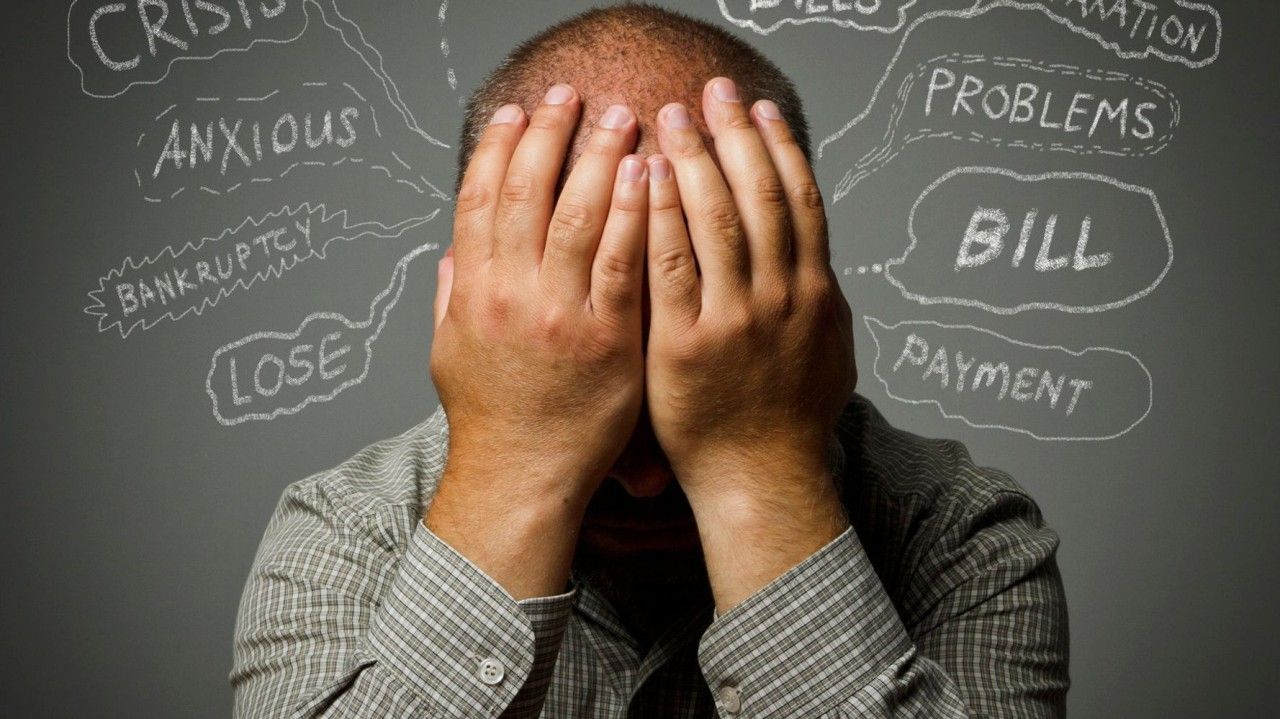Personal Finance News
From worries to wellness - Addressing financial stress and its impact on mental health
.png)
6 min read | Updated on May 16, 2024, 19:12 IST
SUMMARY
Anxiety, depression, and unhealthy coping mechanisms are results of mental illnesses caused by a lack of finances. Open communication, budgeting, professional advice, and healthy lifestyle choices crucially aid in understanding and managing mental pressure.

From worries to wellness - Addressing financial stress and its impact on mental health
In today’s world, personal financial crises are normal thereby making very many people feel worried about it. The worry may be passed other than just money difficulties into our sanity.
Discovering the complex connection between financial stress and mental health and how they can trigger anxiety, and depression, among other emotional disorders is our main aim. This would help uncover the reason for this linkage; elucidate what makes up financial difficulty associated with mental health conditions, as well as suggest coping mechanisms for dealing with such situations.
What is Financial Stress?
Financial stress is that feeling of worry and overwhelm that comes from your money situation. It can happen to anyone, but it's more common for people with lower incomes.
Link between Financial Stress and Mental Health
Money worries can lead to chronic stress, which can be anxiety, depression or both. As a result of such financial problems as debts, losing wages, or unexpected bills, individuals encounter stress that impacts their mental health greatly. Financial distress is directly tied to mental distress, with a complex interplay between the two making it difficult to break this cycle of deprivation and despondency.
This mental pressure does not just ruin a person’s life quality but it also may result in extra monetary problems. Let’s take as an example a depressed person who may feel exhausted and unable to effectively handle their economic issues, hence causing irregular payments or reckless spending which worsens his/her money crisis.
The dimensions within which financial stress may affect a person are more than anxiety or depression hence leading to lower self-esteem and more widespread feelings of hopelessness that make people have trouble even getting along with others or accomplishing their tasks on job sites. It sets frictions that eventually result in poor relations between friends; hence one may end up withdrawing from society since there is nobody else to turn to about their situation hence helplessness that culminates into mental health complications again.
Unhealthy coping mechanisms such as excessive drinking, gambling, or ignoring budgeting altogether may be used by individuals on a behavioural level. Their mental health and financial situation get even more complicated because of each one of these steps implying a vicious circle that is hard to be out of. This mutual connection is essential for the proper handling of financial as well as psycho-economic components. This includes asking for help from finance experts and talking openly. Seeking professional financial advice, open conversations about financial problems, and applying techniques to handle stress can be crucial if this circle is to be broken so that one can start moving forward.
Why are Financial Stress and Mental Health linked?
The financial instability may generate worries that are highly disturbing and very fearful, and there may be fear at the same time. This can range from not affording food to the fear of losing a job.
People who are in a financial crisis may find it hard to estimate their life's potentials let alone measure them as they have been used to associating their success with money or being able to support their family members.
Financial struggles often lead one to detach from their social circle while in other times, it could mean being isolated completely due to money issues. One would not want to participate in any chats for fear that he/she may be asked about how things are going on his/her end regarding cash they don’t have.
Financial difficulties can also show up physically, further affecting mental problems; fear about money usually causes other signs such as insomnia, headaches, or digestive problems that instigate the problem.
Frequently, people might resort to maladaptive coping strategies like alcohol consumption, drug use, or compulsive shopping that could lead to more mental problems or make the current ones worse.
Financial stress and mental health go hand in hand. Dealing with the emotional implications of monetary issues is the first key to managing this type of anxiety effectively. By coming up with tactics for approaching both the emotional and financial aspects of these difficulties, we can ease off and enhance our general wellness.
Coping with Financial Stress and Mental Health
Experiencing financial stress affects both your physical and mental health. Here are some tips that individuals must follow to deal with it:
Remember, you're not alone in this struggle. Many people face financial stress, and resources and people are willing to support you through tough times. Always reach out for help if the stress becomes too much to handle alone.
Effectively managing financial stress requires both practical and emotional strategies. Prioritising budgeting, seeking support, and maintaining healthy habits are essential steps toward alleviating the mental burden of financial worries, fostering resilience, and promoting mental health stability.
By signing up you agree to Upstox’s Terms & Conditions
About The Author
Next Story

